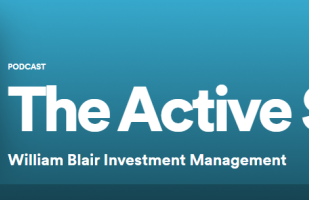
The Active Share Podcast: What’s Culture Got to Do With It?
As it turns out, culture has a lot to do with how we operate. But how difficult is it to measure? In this episode of The Active Share, Hugo sits down with Dr. Tom Reader, an associate professor of organizational psychology at the London School of Economics, to discuss the broad role culture plays in all kinds of organizations; why great cultures are the defining feature of good companies; and how engaging with diverse perspectives can help foster meaningful cultural growth and innovation.
Meet Our Moderator
Hugo Scott-Gall, Partner
VIEW BIO →
| SHOW NOTES | |
| 00:36 | Host Hugo Scott-Gall introduces today’s guest, Dr. Tom Reader. |
| 01:40 | Why Dr. Tom Reader decided to specialize in culture. |
| 02:57 | Can culture be measured? |
| 04:33 | Can culture survive bad leaders? |
| 10:37 | What causes negative insularity within organizations? |
| 15:28 | Excellent and resilient cultures. |
| 17:37 | How much of corporate culture reflects societal culture? |
| 19:51 | What is necessary for an innovative culture to be possible? |
| 23:23 | How the perception around culture is shifting. |
This content is for informational and educational purposes only and not intended as investment advice or a recommendation to buy or sell any security. Investment advice and recommendations can be provided only after careful consideration of an investor’s objectives, guidelines, and restrictions.
Information and opinions expressed are those of the authors and may not reflect the opinions of other investment teams within William Blair Investment Management, LLC, or affiliates. Factual information has been taken from sources we believe to be reliable, but its accuracy, completeness or interpretation cannot be guaranteed. Information is current as of the date appearing in this material only and subject to change without notice. Statements concerning financial market trends are based on current market conditions, which will fluctuate. This material may include estimates, outlooks, projections, and other forward-looking statements. Due to a variety of factors, actual events may differ significantly from those presented.
Investing involves risks, including the possible loss of principal. Equity securities may decline in value due to both real and perceived general market, economic, and industry conditions. The securities of smaller companies may be more volatile and less liquid than securities of larger companies. Investing in foreign denominated and/or domiciled securities may involve heightened risk due to currency fluctuations, and economic and political risks. These risks may be enhanced in emerging markets. Different investment styles may shift in and out of favor depending on market conditions. Individual securities may not perform as expected or a strategy used by the Adviser may fail to produce its intended result.
Investing in the bond market is subject to certain risks including market, interest rate, issuer, credit, and inflation risk. Rising interest rates generally cause bond prices to fall. High-yield, lower-rated, securities involve greater risk than higher-rated securities. Sovereign debt securities are subject to the risk that an entity may delay or refuse to pay interest or principal on its sovereign debt because of cash flow problems, insufficient foreign reserves, or political or other considerations. Derivatives may involve certain risks such as counterparty, liquidity, interest rate, market, credit, management, and the risk that a position could not be closed when most advantageous. Diversification does not ensure against loss. The inclusion of Environmental, Social and Governance (ESG) factors beyond traditional financial information in the selection of securities could result in a strategy's performance deviating from other strategies or benchmarks, depending on whether such factors are in or out of favor. ESG analysis may rely on certain values based criteria to eliminate exposures found in similar strategies or benchmarks, which could result in performance deviating.
There can be no assurance that investment objectives will be met. Any investment or strategy mentioned herein may not be appropriate for every investor. References to specific companies are for illustrative purposes only and should not be construed as investment advice or a recommendation to buy or sell any security. Past performance is not indicative of future returns.
Privacy & Security | Cookie Policy | Social Media Disclaimer | FINRA’s BrokerCheck | Glossary


